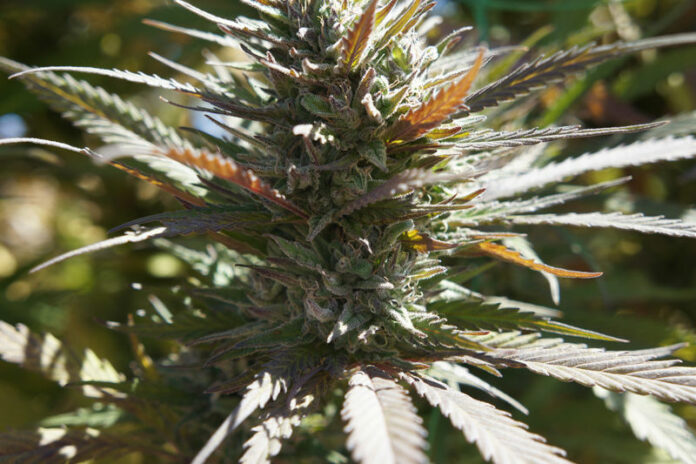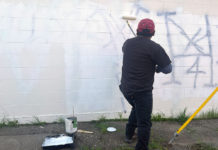Where can I get high?
Since voters approved the legalization of recreational marijuana in 2016, cities and towns across the state have scrambled to modify their cannabis ordinances. Thanks to Prop. 64, the Adult Use of Marijuana Act (AUMA), starting on Jan. 1 adults were finally able to smoke and consume weed without fear of being arrested.
In general, AUMA allows adults 21 and over to possess, privately use and give away up to one ounce of cannabis, and to cultivate six plants for personal use at their residence.
It also legalized the commercial sale, distribution, and production of cannabis for adult use at state-licensed facilities under the Medical and Adult Use of Cannabis Regulation and Safety Act (MAUCRSA) approved by the legislature in 2017.
However, just because the state legalized cannabis use for adults, it does not mean all jurisdictions have the same rules and regulations on the plant. Local city and county governments can restrict or ban cannabis businesses in their jurisdictions.
Communities are still working to make adjustments after the arrival of adult-use cannabis. Likewise, cannabis consumers and businesses are doing their best to keep up with the changes.
In Sonoma County no two cities or towns are alike and their ordinances on cannabis use are no exception. The following is an analysis of current cannabis rules and regulations in Sebastopol, Windsor, Cloverdale and Healdsburg.
Sebastopol
Sebastopol has a strong history of cannabis support, said Craig Litwin, former Sebastopol councilmember and principal in the 421 Group, a Sebastopol-based cannabis consultant.
“We’ve had a personal cultivation ordinance for many years in Sebastopol, since 2009,” Litwin said.
The first cannabis business in the county to be granted a cultivation permit, other than medical marijuana dispensaries, was Fiddler’s Greens farm, located south of Sebastopol.
As of now two businesses have been granted permission by the city to sell adult-use cannabis, Solful and Peace in Medicine.
Litwin said he expects that to change as the Sebastopol City Council looks to update its cannabis ordinance.
“Assuming the council approves the ordinance, then other licensing types could be applied for,” Litwin said.
Cannabis delivery is allowed into the city and each residence is allowed up to six plants, indoor or outdoor.
Windsor
Travel is necessary for Windsor adults who want to purchase cannabis legally. Overall, the Town of Windsor is less supportive of anything cannabis-affiliated. Police Chief Carlos Basurto said he doesn’t expect the town’s stance on cannabis to change.
“Windsor passed an ordinance banning all retail sales of marijuana, marijuana products and marijuana accessories,” Basurto said. “I do not see this changing in the coming year.”
Residents of the town do have the option to grow up to six plants per residence, but it has to be indoors only. There is another option for those who don’t feel like driving out of town to get their cannabis—they can call it in.
“Distribution facilities are not allowed; however, deliveries can be made by licensed and permitted individuals,” Basurto said.
Cloverdale
In the last year the city of Cloverdale took big steps in opening the door to cannabis in the community. The city council approved a new cannabis ordinance allowing permission for adult-use cannabis businesses to open doors in the city, but within certain zones only. According to the ordinance, two dispensaries will be allowed in the city; and manufacturing, cultivation, distribution and testing are the commercial applications being considered.
Thus far, no dispensaries are open for business in Cloverdale; however, City Manager Paul Cayler said that could change.
“There are three qualified proposers that are interested in opening dispensaries,” Cayler said.
If any do open, they will be restricted to the following districts: downtown commercial, transit-oriented commercial, general commercial, service commercial, industrial park and general industrial.
Commercial cultivation, manufacturing, testing, delivery and distribution sites are also restricted to certain zones, depending on the use. Most cultivation is confined to industrial zones.
Residents can call in delivery for their cannabis and each residence is allowed to grow six plants, indoors only.
Healdsburg
Healdsburg Police Chief Kevin Burke said the city is not a “big player” in the rising cannabis industry. A reflection of that notion can be found in the city’s latest cannabis ordinance, which prohibits all marijuana businesses and dispensaries.
City Manager David Mickaelian said he hasn’t yet received a strong response for or against the new ordinance regulations.
“It’s still new and my guess is we will see more and more comments,” he said.
Healdsburg’s ordinance also clearly expresses that the cultivation of marijuana is not allowed within 300 feet of a hospital, church, school, park or playground, child care center, recreation center or youth center.
It also prohibits smoking or ingesting marijuana in any public place or within 1,000 feet of a school or any location where tobacco is prohibited.
As of now, adult residents can grow up to six plants per residence, indoors only, and call in for a delivery.
Driving with cannabis
In each jurisdiction, the warning from law enforcement is the same, don’t toke and drive. The penalties for driving under the influence of marijuana are exactly the same as for DUI of alcoholic beverages. The charge is the same, Driving Under the Influence, 23152(a) of the California Vehicle Code, whether it is alcoholic beverages or drugs.
Under the new state law, adults are allowed to transport up to one ounce of cannabis and eight grams of concentrated cannabis.
Solful dispensary CEO and co-founder Eli Melrod said it’s best to be cautious of driving while in possession of cannabis. He suggests transporting cannabis in the trunk of the vehicle.
Delivery options
There are a plethora of cannabis delivery businesses in Sonoma County; however, most are near Santa Rosa along Highway 101. Delivery can be expensive and most require buyers to provide a state-issued medical cannabis card. Most delivery services have a standard minimum of around $50.








